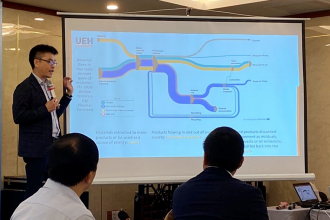
Ethiopia IGE fellows gather to discuss the establishment of IGE alumni network
EfD Ethiopia organized a workshop to discuss how to establish a robust and vibrant network of IGE fellows, researchers, and the broader community. The aim of the network is interaction between…




